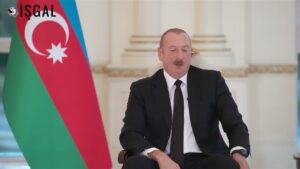“I Came for the Money.” Interview with a Turkish-Backed Syrian Mercenary in Libya
by Lindsey Snell

When Turkish President Erdogan announced he would be sending men from the so-called “Syrian National Army,” also known as the Turkish-backed Free Syrian Army (TFSA) to Libya to fight in support of the Government of National Accord (GNA) in Tripoli, rumors among the Syrian opposition began to swirl. One TFSA commander in Afrin told me that fighters would be paid $2000 per month. “It’s around $100 here in Syria, or $2,000 there. It’s an easy choice for them,” he said. He mentioned that recruitment efforts were heavily focused on areas in and around Idlib recently recaptured from the Syrian opposition by the Syrian government and Russia. “They’re homeless. Erdogan lures them with this as a way to rebuild their lives for their families.”
The TFSA commander mentioned that the TFSA was offering a sort of recruitment bonus of a couple hundred dollars for those who didn’t want to travel to Libya to fight but knew someone who did and referred them. “And it’s not just fighters they are sending,” the commander said. “It’s also civilians who are poor and willing to go. They have to hit certain numbers every time they send a plane.” To date, an estimated 3,000 TFSA members have traveled to Libya.
The Investigative Journal managed to interview one TFSA mercenary stationed at a camp in Tripoli. We can’t reveal his name, but we will call him “Ahmed.” We can’t reveal the name of his faction, or his exact location.

“We hear ‘Haftar, Haftar, Haftar,’ but we don’t know who he is and never even saw him on the news,” Ahmed said, referring to General Khalifa Haftar, the leader of the Libyan National Army (LNA), the force fighting the GNA. “The Turks mentioned his name to us in Syria, and told us to go fight him, but no one cared until they said it was $2,000 a month to go.” Before arriving in Libya, Ahmed hadn’t heard of the LNA, the force fighting the GNA in Tripoli. “We haven’t even met Libyans here,” he said. “The Turks come to train us, but that’s all we see.”
President Erdogan has claimed that there are no Turkish soldiers on the ground in Libya, and that only Turkish military commanders and advisors had traveled to Tripoli. Ahmed says this isn’t true. “There are Turkish soldiers here. Not just commanders. There are a lot of Turkish soldiers, but not as many as there are Syrians. They’re living in a separate place. And they’re treated better than us.”
Ahmed says there was much talk among the Syrian militants about escaping the camp and finding a smuggler to ferry them to Italy, but in his area, this hasn’t happened. “The Turks came to count us to make sure it didn’t happen,” he said. (The LNA has reported the capture of several Syrian militants who were attempting to make the trip, including an ISIS member, and say that more than a hundred more have already made deposits to try to secure their spots on boats with smugglers.)
Shortly after arriving at the camp, Ahmed said he was part of a group of 70 who were divided between ground forces, snipers, and other positions. “I’ve been in many camps, and the difference in this one is that we are not being trained for combat as usual,” he said. “They are training us for guerrilla street wars…for close-range street combat. But we barely hold weapons in practice,” he said. The Syrian militants also not been briefed on the weaponry possessed by or fighting style of the LNA.
Ahmed’s group has yet to see combat, though a number of Syrian mercenaries have already been killed in battle. “We’re only eating, playing sports, and sitting in the camp, and we’re forbidden to leave the camp. They bring us food and cigarettes,” Ahmed said. “We’re getting $2,000 a month to do nothing.” Ahmed said.

Ahmed has no regrets about coming to Libya. “I came for the money…because of the situation in Syria and because the dollar is so shitty [referring to the near-collapse of the Syrian Pound],” he said. “Some of us are from Aleppo, some from Ghouta and Homs…and all of us are displaced with nothing left. We have no homes. We have nothing left. We don’t even have a tree branch in Syria. And I still have a family to feed. Call us mercenaries or whatever, but what are we supposed to do? No one has anything left in Syria.”


